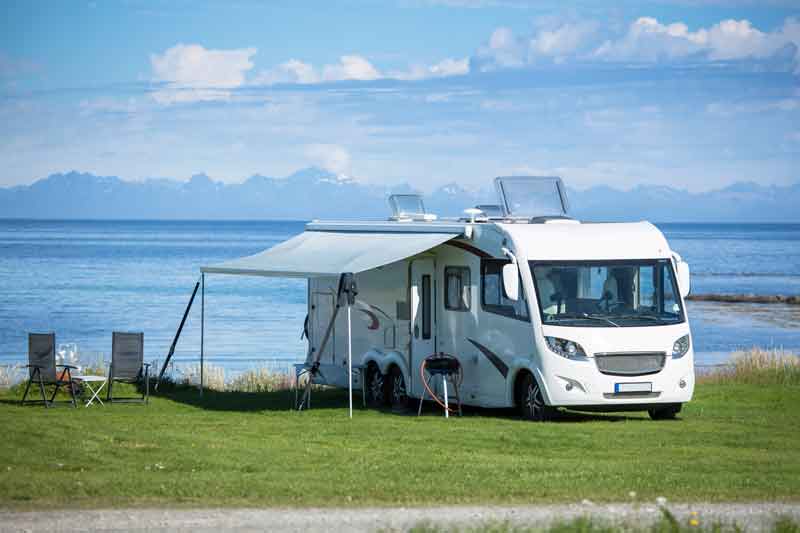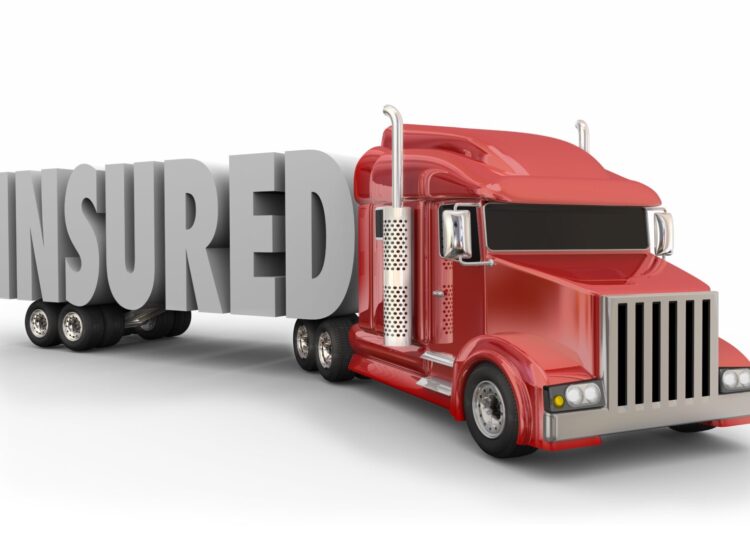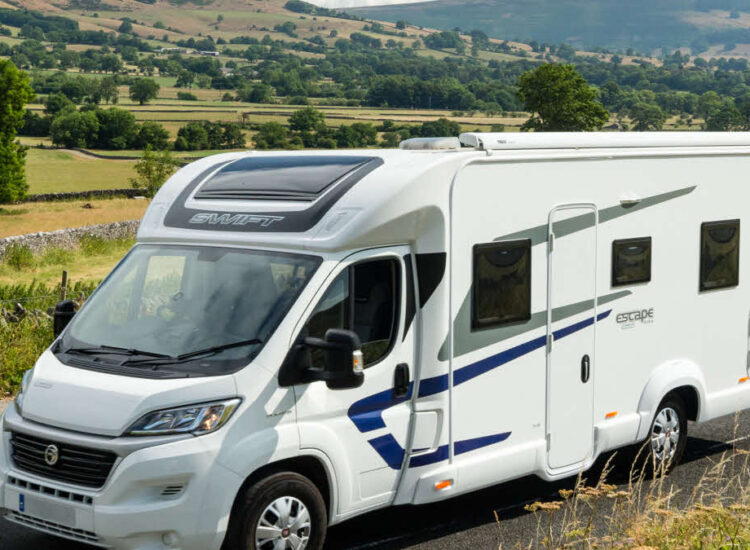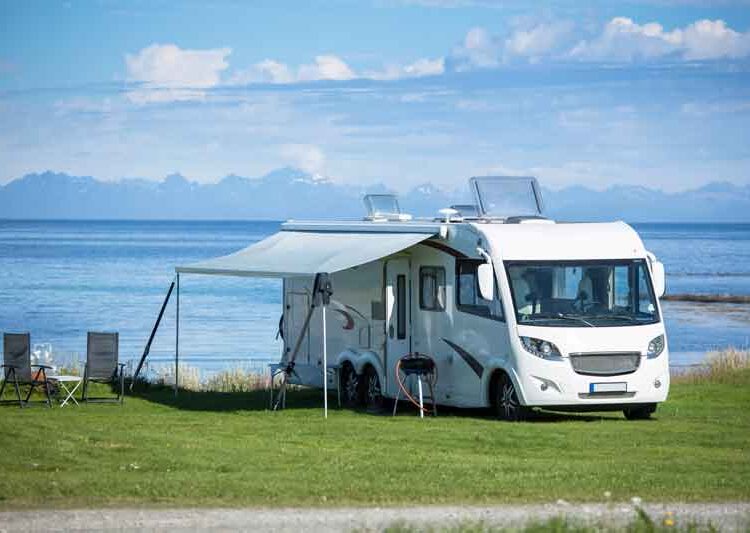Motorcoach insurance is a specialized type of commercial vehicle insurance designed to protect businesses that operate motorcoaches, such as tour buses, charter buses, and other large passenger vehicles. These vehicles are integral to the transportation industry, providing services for group travel, tourism, and public transit. However, operating motorcoaches comes with unique risks, from accidents on the road to liability for passenger safety. Motorcoach insurance offers financial protection against these risks, ensuring that businesses can operate with confidence while safeguarding their assets and passengers.
Toc
- 1. Why Motorcoach Insurance is Essential
- 2. Types of Motorcoach Insurance Coverage
- 3. Related articles 01:
- 4. Factors Influencing Motorcoach Insurance Premiums
- 5. How to Choose the Right Motorcoach Insurance Policy
- 6. Related articles 02:
- 7. Tips for Reducing Motorcoach Insurance Costs
- 8. Common Challenges in Motorcoach Insurance
- 9. The Future of Motorcoach Insurance
- 10. Conclusion
This article explores the essentials of motorcoach insurance, including its importance, types of coverage, factors influencing premiums, and tips for selecting the right policy. Whether you’re a motorcoach operator or a business owner considering entering the industry, understanding motorcoach insurance is critical to your success.

Why Motorcoach Insurance is Essential
Operating a motorcoach business involves significant responsibilities. Motorcoaches carry multiple passengers, often across long distances, and are subject to strict safety regulations. Accidents, mechanical failures, or lawsuits can result in substantial financial losses. Motorcoach insurance mitigates these risks by providing coverage for a range of scenarios, such as collisions, property damage, bodily injury, and even business interruptions.
Without proper insurance, a single accident could lead to devastating costs, including medical expenses, legal fees, and vehicle repairs. Additionally, many states and federal regulations require motorcoach operators to carry specific types of insurance, such as liability coverage, to legally operate. Failing to comply with these requirements can result in fines, license suspensions, or even business closure.
Motorcoach insurance also protects passengers, ensuring that their medical needs are covered in the event of an accident. This not only fulfills legal obligations but also builds trust with customers, enhancing the reputation of the business.
Types of Motorcoach Insurance Coverage
Motorcoach insurance policies are typically tailored to the specific needs of the business. Below are the primary types of coverage available:
1. Liability Insurance
Liability insurance is the cornerstone of motorcoach insurance and is often required by law. It covers damages or injuries caused to third parties in an accident where the motorcoach operator is at fault. This includes:
-
Bodily Injury Liability: Covers medical expenses, lost wages, and other costs for individuals injured in an accident.
-
Property Damage Liability: Pays for repairs or replacement of property, such as vehicles or infrastructure, damaged in an accident.
For motorcoach operators, high liability limits are recommended due to the large number of passengers and the potential for significant claims.
2. Physical Damage Coverage
This coverage protects the motorcoach itself from damage due to accidents, vandalism, theft, or natural disasters. It includes:
-
Collision Coverage: Covers repairs or replacement of the motorcoach after a collision, regardless of fault.
-
Comprehensive Coverage: Protects against non-collision events, such as theft, fire, or weather-related damage.
Given the high cost of motorcoaches, physical damage coverage is crucial for protecting the business’s investment.
3. Passenger Liability Coverage
Since motorcoaches transport multiple passengers, passenger liability coverage is vital. This coverage addresses injuries or damages sustained by passengers while boarding, riding, or exiting the vehicle. It may also cover incidents like slip-and-fall accidents at bus stops or terminals.
4. Uninsured/Underinsured Motorist Coverage
This coverage protects the motorcoach operator if an accident is caused by a driver who lacks sufficient insurance or has no insurance at all. It ensures that repair costs and medical expenses are covered even if the at-fault party cannot pay.
5. Medical Payments Coverage
Medical payments coverage, also known as MedPay, covers medical expenses for the driver and passengers, regardless of who is at fault in an accident. This can include hospital bills, ambulance fees, and other medical costs.
2. https://duocphamvietduc.com.vn/mmoga-rv-insurance-your-essential-companion-on-every-adventure-road/
5. https://duocphamvietduc.com.vn/motor-home-insurance-your-guide-to-protecting-your-rv-in-2025/
6. Business Interruption Insurance
If a motorcoach is out of service due to an accident or mechanical issue, business interruption insurance can compensate for lost income during the downtime. This is particularly important for businesses that rely heavily on their fleet for revenue.
7. Cargo Insurance
For motorcoach operators transporting luggage or other passenger belongings, cargo insurance covers damage or loss of these items. This is especially relevant for tour operators or long-distance charter services.
8. Workers’ Compensation Insurance
If the motorcoach business employs drivers or other staff, workers’ compensation insurance is essential. It covers medical expenses and lost wages for employees injured on the job, such as drivers involved in accidents.
9. Umbrella Insurance
Umbrella insurance provides additional liability coverage beyond the limits of standard policies. It’s a cost-effective way to increase protection for businesses facing high-risk scenarios, such as operating in busy urban areas or transporting large groups.
Factors Influencing Motorcoach Insurance Premiums

The cost of motorcoach insurance varies depending on several factors. Understanding these can help operators manage costs and secure affordable coverage.
1. Fleet Size and Vehicle Type
The number of motorcoaches in a fleet and their make, model, and age significantly impact premiums. Newer, well-maintained vehicles with advanced safety features may qualify for lower rates, while older or high-value motorcoaches may cost more to insure.
2. Driver Records
The driving history of employees plays a critical role. Drivers with clean records and commercial driving experience are less risky to insure, leading to lower premiums. Conversely, drivers with a history of accidents or traffic violations may increase costs.
3. Operating Area
The geographic area where the motorcoach operates affects premiums. Urban areas with heavy traffic and higher accident rates typically result in higher premiums compared to rural routes. Long-distance or interstate operations may also increase costs due to varying state regulations.
4. Coverage Limits and Deductibles
Higher coverage limits and lower deductibles provide more protection but increase premiums. Operators must balance the level of coverage with their budget to find a cost-effective solution.
5. Claims History
A business with a history of frequent claims or accidents will likely face higher premiums. Maintaining a strong safety record can help keep costs down.
6. Safety Features and Maintenance
Motorcoaches equipped with advanced safety features, such as anti-lock brakes, GPS tracking, or collision avoidance systems, may qualify for discounts. Regular maintenance and adherence to safety protocols also demonstrate lower risk to insurers.
7. Type of Operations
The nature of the motorcoach business impacts premiums. For example, tour buses operating on fixed routes may have different insurance needs compared to charter buses hired for private events. The frequency of trips and passenger volume also plays a role.
How to Choose the Right Motorcoach Insurance Policy
Selecting the right motorcoach insurance policy requires careful consideration of the business’s needs and risks. Here are some steps to guide the process:
1. Assess Your Risks
Evaluate the specific risks associated with your motorcoach operations. Consider factors like the number of passengers, types of routes, and whether you operate locally or across state lines. This will help determine the types and amounts of coverage needed.
2. Compare Quotes from Multiple Insurers
Work with insurance providers specializing in commercial vehicle or motorcoach insurance. Request quotes from multiple insurers to compare coverage options and pricing. Be sure to provide accurate information about your fleet, drivers, and operations for precise quotes.
3. Work with an Experienced Broker
An insurance broker with expertise in motorcoach insurance can help navigate the complexities of commercial policies. They can identify insurers offering competitive rates and tailor coverage to your needs.
4. Review Policy Exclusions
Carefully read the fine print of any policy to understand exclusions. For example, some policies may not cover certain types of cargo or incidents occurring outside specific geographic areas.
5. Consider Bundling Policies
Bundling multiple types of coverage, such as liability, physical damage, and workers’ compensation, with the same insurer can often lead to discounts.
6. Prioritize Safety and Training
Investing in driver training programs and safety protocols can reduce accidents and claims, potentially lowering premiums over time. Some insurers offer discounts for businesses with strong safety records.
5. https://duocphamvietduc.com.vn/mmoga-college-loans-your-guide-to-financing-higher-education-in-2025/
7. Understand Regulatory Requirements
Ensure the policy meets all federal and state requirements for motorcoach operators. For example, the Federal Motor Carrier Safety Administration (FMCSA) mandates minimum liability coverage for interstate operators.
Tips for Reducing Motorcoach Insurance Costs
While motorcoach insurance is a significant expense, there are ways to manage costs without compromising coverage:
-
Maintain a Strong Safety Program: Implement regular driver training, vehicle maintenance, and safety audits to reduce the likelihood of accidents and claims.
-
Choose Higher Deductibles: Opting for higher deductibles can lower premiums, but ensure the business can afford the out-of-pocket costs in the event of a claim.
-
Leverage Technology: Equip motorcoaches with telematics devices to monitor driver behavior and improve safety, which may qualify for discounts.
-
Shop Around Annually: Insurance rates change over time. Reviewing policies annually ensures you’re getting the best rates and coverage for your needs.
-
Bundle Coverage: Combining multiple policies with one insurer can lead to cost savings.
-
Maintain a Clean Claims Record: Avoiding accidents and claims demonstrates low risk, which can result in lower premiums over time.
Common Challenges in Motorcoach Insurance
Motorcoach operators may face challenges when securing insurance, including:
-
High Premiums: Due to the size of motorcoaches and the number of passengers, premiums can be costly, especially for new businesses or those with limited claims history.
-
Regulatory Compliance: Navigating federal and state regulations can be complex, particularly for interstate operators.
-
Finding Specialized Insurers: Not all insurance providers offer motorcoach insurance, so finding a carrier with expertise in this niche can be challenging.
Working with a knowledgeable broker and staying informed about industry regulations can help overcome these challenges.
The Future of Motorcoach Insurance
The motorcoach industry is evolving with advancements in technology, such as autonomous driving systems and electric vehicles. These changes are likely to impact motorcoach insurance in the coming years. For example, autonomous features may reduce accident rates, potentially lowering premiums, but they could also introduce new risks, such as cybersecurity threats. Insurers may begin offering policies tailored to these emerging technologies.
Additionally, as environmental concerns grow, operators transitioning to eco-friendly fleets may benefit from discounts or specialized coverage for electric or hybrid motorcoaches. Staying ahead of these trends can help operators secure cost-effective and comprehensive insurance.
Conclusion
Motorcoach insurance is a critical component of running a successful motorcoach business. It protects against financial losses, ensures compliance with regulations, and provides peace of mind for operators and passengers alike. By understanding the types of coverage, factors affecting premiums, and strategies for selecting the right policy, motorcoach operators can make informed decisions that safeguard their business.
Investing time in researching insurers, prioritizing safety, and regularly reviewing policies can lead to significant cost savings and better protection. As the industry evolves, staying informed about new technologies and regulatory changes will ensure that motorcoach operators remain well-protected and competitive in the market.





